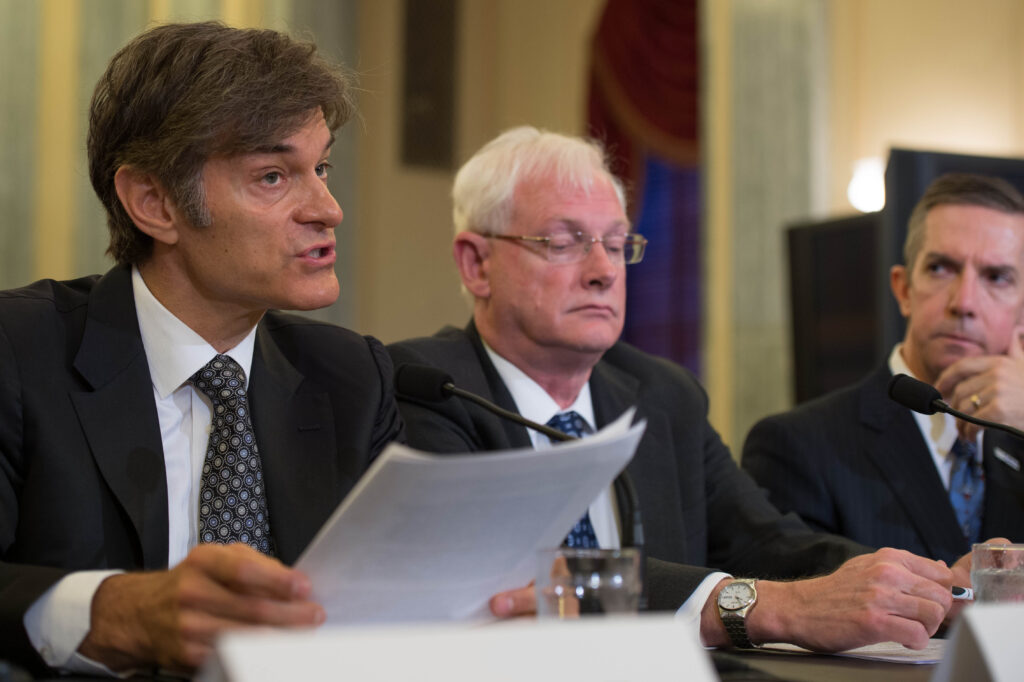
“Eat these berries, and you’ll live 200 years! Drink this smoothie, and you’ll never forget your keys again!” Anyone who’s ever stumbled onto daytime television likely recognizes this enthusiastic brand of “medical” advice. It’s addictive, enticing—and often wildly misleading. At least, that’s what Canadian researchers discovered after binge-watching 40 episodes of “The Dr. Oz Show.”
Science Meets Daytime TV (And It’s Not Pretty)
Let’s be real: Most of us don’t watch “The Dr. Oz Show” for rigorous science. But considering nearly 3 million viewers tune in daily, you’d hope that at least some of the advice dispensed had genuine scientific backing. Unfortunately, a study published by researchers at the University of Alberta in the British Medical Journal dashed those hopes.
The team analyzed 40 randomly selected episodes of “The Dr. Oz Show,” meticulously checking each recommendation against scientific literature. The review found that only 46% of Dr. Oz’s recommendations were supported by evidence. Even worse, 15% of the claims directly contradicted established scientific facts, and a shocking 39% simply had no supporting evidence at all.

Wait… Did Dr. Oz Really Say That?
If you think those stats sound grim, the details are even wilder. The researchers noted that many recommendations weren’t just unsupported—they were spectacularly vague. Take this gem, for instance: “Vitamin E improves your brainpower!” Great! But wait, how much Vitamin E? What specific cognitive improvements? How did Dr. Oz quantify this magical brain boost?
He didn’t.
In fact, the researchers pointed out that the magnitude of claimed benefits—like reducing Alzheimer’s risk by “25-70%”—were often thrown around without context or absolute numbers. It seems that being specific doesn’t do well for ratings.
ALSO READ: They Couldn’t Own a Beatles Record, So They Smuggled Songs on Skeletons
Conflicts of Interest? Never Heard of ’Em!
Another eyebrow-raising discovery was the near-total absence of conflict-of-interest disclosures. Of the 479 recommendations from Dr. Oz, only one—yes, one single recommendation—acknowledged any potential conflicts. Given the sheer volume of miracle cures, exotic supplements, and brand-name products that pop up in each episode, you might wonder: who’s benefiting more, the viewers or the companies whose products magically appear on screen?
If It Sounds Too Good To Be True…
What’s even funnier (or perhaps sadder) about this whole debacle is the kind of advice most frequently given. Dr. Oz’s favorite category? Dietary advice—making up nearly 40% of all recommendations. From mysterious “immune-boosting” superfoods to exotic oils that promise to slim your waistline overnight, Oz’s dietary suggestions range from entertainingly harmless to potentially problematic.
Contrast that with the competing medical show “The Doctors,” which at least advises viewers to consult healthcare providers most frequently. Dr. Oz, meanwhile, hands out unverified dietary advice like Oprah hands out cars.
Details, Details, Details…
Digging deeper into the Canadian researchers’ findings reveals even more absurdities. Not only were benefits often non-specific, but potential harms or side effects of these recommendations were mentioned less than 10% of the time. For instance, miracle supplements or exotic diet plans rarely came with cautions or considerations for possible negative outcomes. This omission is particularly troubling because every medical intervention—no matter how benign it seems—carries some risk.
Additionally, researchers noted that even basic details, such as the cost of recommended treatments or supplements, were rarely provided. Of the 479 recommendations from Dr. Oz, only about 12.5% ever bothered mentioning costs. It’s almost as if Dr. Oz assumes his audience has endless resources and unquestioning trust.
A Surprising Admission (Not from Dr. Oz)
So, why would a group of serious medical researchers even choose to examine a daytime TV show? Simple: frustration. Doctors everywhere cringe when patients show up insisting on treatments they’ve heard on TV. The Canadian team openly admitted they didn’t anticipate how vague and nonspecific Oz’s advice would be, necessitating some comedic scrambling to even figure out exactly what claims they were supposed to test.
One researcher wryly noted that some recommendations were so unclear they couldn’t even identify what evidence might support them. It’s almost as if Dr. Oz’s primary medical reference was the back of a cereal box.
Vague Claims Meet Skeptical Science
The researchers initially set out to create clear, searchable scientific questions based on Oz’s claims—but this quickly became challenging. Recommendations were frequently couched in such ambiguous language that formulating specific research queries proved difficult. For instance, claims like “this supplement boosts immunity” leave researchers puzzled. What kind of immunity? Against what? Boosted by how much?
In several instances, the team had to adapt their initial research protocol significantly due to these issues, ultimately adopting an iterative, consensus-based approach to evaluate the claims. The difficulty in testing Oz’s vague advice emphasizes the show’s fundamental disconnection from rigorous scientific methodology.
The Bigger Issue: Trust
While it’s easy to poke fun at sensationalized TV medicine, the stakes can be genuinely high. Millions trust Oz’s advice implicitly, sometimes making significant health decisions based on what they hear. This blind trust becomes risky when about half the claims have no credible basis. Medical professionals have long voiced concerns over misinformation spread by popular figures like Dr. Oz, but this study finally put numbers to the suspicions.
When Oz tells you, “Floss every day—it reduces gum inflammation, which prevents aging!” you might feel compelled to listen. But, the researchers asked, where exactly is the solid proof that flossing keeps you looking young forever? Spoiler alert: it’s missing.

The Burden on Real Doctors
Another striking detail the study highlighted was the frequency of Dr. Oz’s recommendations to “consult healthcare professionals.” Unlike “The Doctors,” where this advice was given 33% of the time, Dr. Oz mentioned professional consultation a mere 9% of the time. This discrepancy places the responsibility for clarity and safety squarely back on the real medical community—often after viewers have already internalized misleading claims.
Doctors everywhere thus find themselves in the awkward position of debunking popular TV health claims regularly. This not only creates frustration but also complicates genuine patient-provider communication, potentially eroding trust between doctors and patients.
What’s the Verdict for Viewers?
Before you swear off “The Dr. Oz Show” entirely, consider this: It’s entertaining. It’s charismatic. And hey, you might actually learn that kale is good for you (though perhaps not miraculous). But as the Alberta team bluntly concludes, if you’re taking health advice from medical TV shows, skepticism should be your new best friend.
The researchers themselves joked that their study might have been as entertaining as the shows they reviewed — if not slightly depressing for anyone who truly believed in Dr. Oz’s magical remedies. But laughter aside, their takeaway was clear: Ask tough questions, seek evidence, and always—always—be wary of medical advice that sounds too good (or too vague) to be true.
Perhaps the best recommendation Dr. Oz ever unintentionally gave us: when in doubt, consult your actual doctor.

